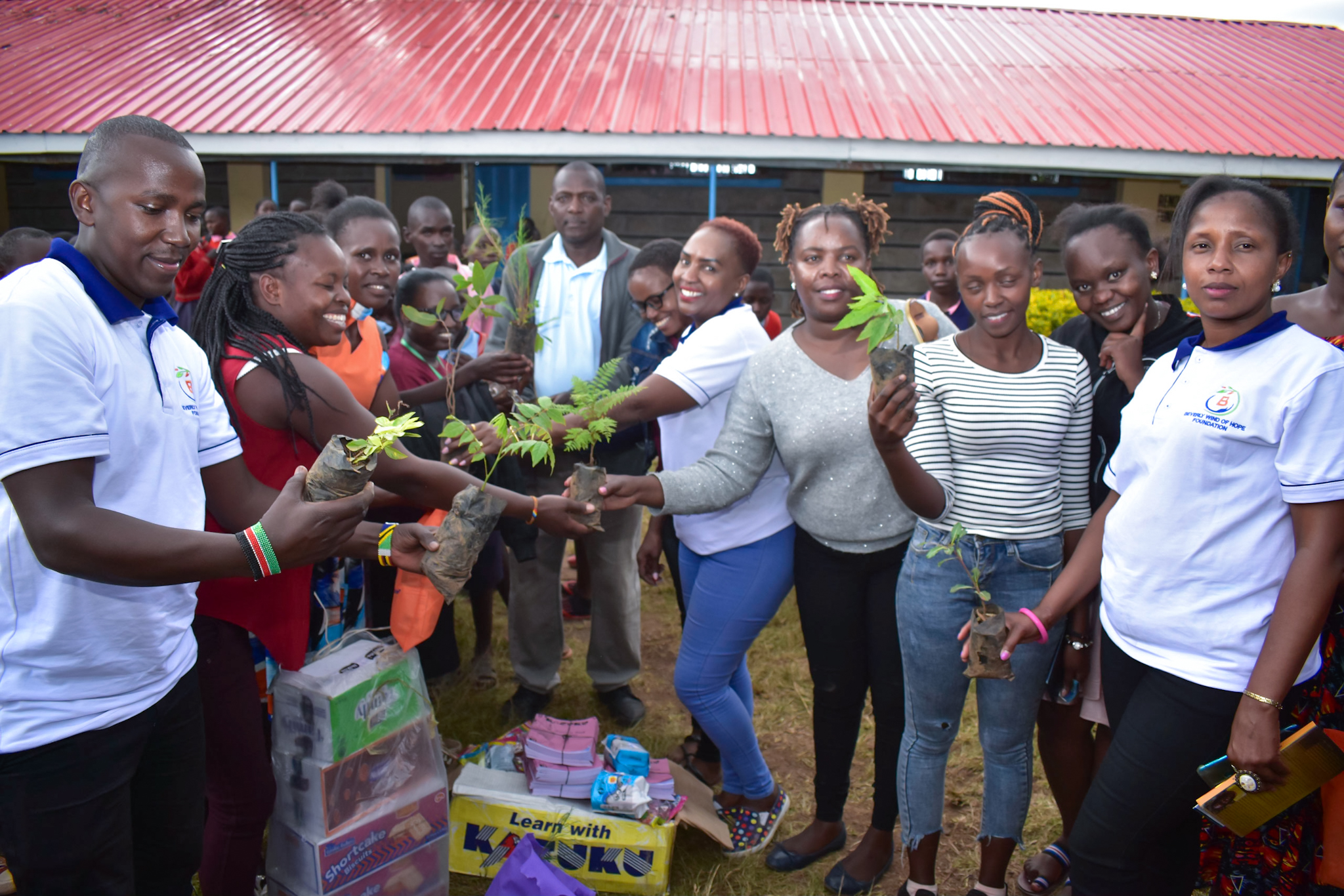For many years, girls in rural areas have continued to undergo challenges in accessing sanitary pads during their menstrual cycle.
The high levels of poverty and harsh economic times have led to some even falling prey to men who lure them into unprotected sex for them to get some coins to buy the sanitary pads.
Speaking over the weekend during a visit to Tuiyotich Primary School in Visoi Ward of Rongai sub county in Nakuru County, a 14-year-old Joyce* says many girls have suffered in silence.

According to her, the shame that comes with the menstrual cycle and the stigma especially for girls in rural areas is unbearable.
Some of them, she reveals, choose to stay at home to avert the shame even at school due to lack of sanitary pads.
“When you come from a poor background you have no option but to live within the means. Some of us cannot afford the pads and we end up staying at home and missing school for the three days to avert shame,” she says.
Her story tells what most adolescent girls in rural areas have to go through during their menstrual cycle.
The gap in the rural areas has seen several lobby groups team up to start addressing the same through mentorship talks to the girls as well as supply of free dignity packs.
Speaking during such a visit at Tuiyotich Primary School, Ruth Njoki from Beverly Wind of Hope Foundation revealed that the initiative is a partnership with Nakuru-based Community of Sant’egidio and Royal Family Foundation.

According to her, hygiene and academics go hand in hand and that the girl child cannot concentrate in her studies when matters of personal hygiene are not addressed.
“Having a good hygiene management helps them even improve in their academics as they are able to concentrate even in class,” states Ruth.
This even as the lobby groups pointed out that the harsh economic times have continued to affect families in rural areas and as such many parents would not afford sanitary pads for their girls.
Under the program, the groups are also engaging the boy child with mentorship programs to help them understand and support the girls during their menstrual period.
Sentiments echoed by Caroline Kiptui from Community of Sant’egidio who noted that stigma is the biggest challenge girls face during the menstrual cycle.
She says there is a need for concerted effort in addressing stigma at all levels in society as far as the menstrual cycle is concerned.
“There is a need for sex education to help girls and boys as well as the society at large to understand that the menstrual cycle is a normal thing. Let us all unite in ending stigma,” she says.
Tuiyotich Primary School’s Deputy Head teacher Mr. Solomon Bari admits that learners in rural areas face numerous challenges.
This, attributes to the high level of poverty among parents who on many occasions cannot afford even to buy the necessities making it even worse for girls during their menstrual cycle.
He is quick to note that the majority of the pupils have become chronic absentees as many are engaging in manual work at home to help their parents during the harsh economic times.
“We are very grateful that the visitors came to our school to support our girls and boys. We know there are many challenges but with proper collaboration then we can see a tremendous change and improvement in academics,” he says.
In 2017, President Uhuru Kenyatta assented to the Basic Education Amendment Act that was supposed to supply Public Schools with free sanitary pads.
However, the programme’s numerous challenges have affected girls’ school attendance.
Back in 2020, the responsibility of allocating the pads was taken away from the Ministry of Gender and given back to the Education Ministry.
The then education CS George Magoha also revealed in 2020 that the government had no money to keep funding the programme.

